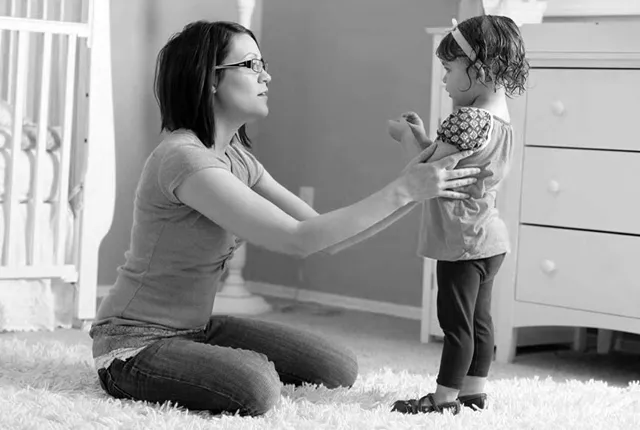Regardless of the age of the child, parents must be consistent in establishing the rules, observing them and “sanctioning” for non-compliance. It is important to understand that children will not follow the rules that parents do not follow and will not believe in the consequences of non-compliance if parents do not follow them. However, when establishing the rules, one should also take into account the peculiarities of the child’s age.
Home discipline from 0 to 3 years
At this age, children are curious about everything, they want to touch everything, try and taste everything, so the wisest thing is to eliminate temptations. The child at this age does not yet understand the causal relationship, so any punishment is ineffective – the baby is not yet able to understand the connection between yours and his actions.
Elimination of absolutely all “forbidden” items is impossible, so if a child under the age of 3 years is drawn to something like this – it is worth saying in a calm balanced tone that this is not possible and give the child a pause to calm down.
Home discipline from 3 to 6 years
Such children already understand the relationship between events and phenomena, so they need to explain the rules of home behavior. The child must understand what awaits him if the rules are violated – only explaining that it makes sense in punishment.
For example, if a child painted a wall for the first time, then discuss why it is not allowed and what will happen if it happens again. It is important if the child paints the wall a second time, keep his word and implement the punishment. It is best if it is associated with what has been done. In the case of wall drawings, for example, you can limit the use of pencils and involve the child in wall laundering.
Home discipline from 6 to 9 years
At this age, it is also important to keep the “promises” regarding punishment. The child should know that you mean exactly what you say. If you threaten to turn around and go home, if the children do not stop quarreling in the car, you need to be sure that you can do it.
Do not use unrealistic threats: “If you do not stop, you will never watch TV” – a loud but senseless phrase that will not teach the child anything, but will only make it clear that your threats are never realized and in the future you can disobey.
Do not punish the child for too long – it demotivates and the child forgets the root cause. It is also important, along with punishment, not to forget about the praise and reward for good behavior. Praising a child for a cleaned room can be much more effective than scolding for not cleaning it.
For children from an early age, psychologists advise to implement the rules. The sooner children understand that there are rules and their violation threatens with punishment, the better. It is important that parents are consistent and act together in this direction, as well as show their own example, because if your things are constantly scattered, then the child will have a logical question: “Why should mine be compiled?”.

